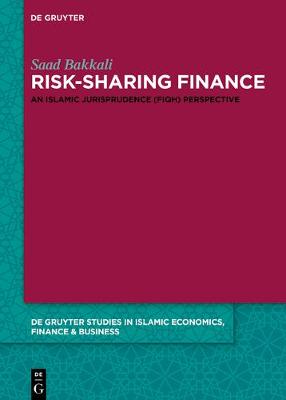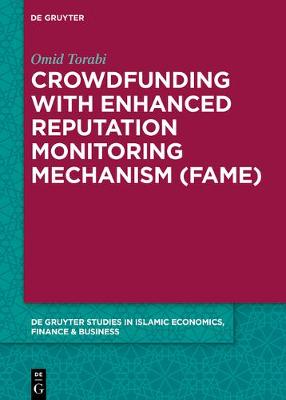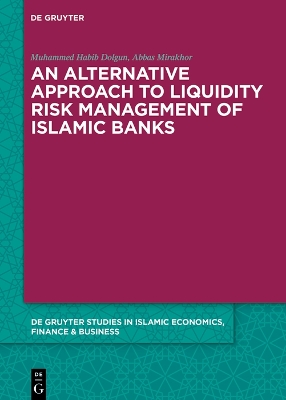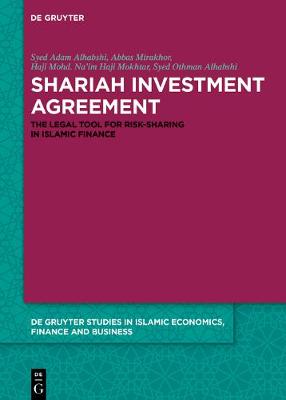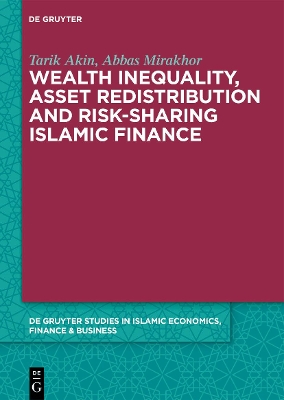De Gruyter Studies in Islamic Economics, Finance and Business
6 total works
In 2012, a gathering of some of the Muslim world's most prominent experts in Jurisprudence (Fuqaha) and economists issued the Kuala Lumpur Declaration (Fatwa) in which they identified risk sharing as the essence of Islamic finance. The Declaration opened the door for a new Fiqh approach to take the lead in developing the jurisprudence of multilateral and multi-counterparty transactions. This Declaration (Fatwa) provides a prime motivation to search for a comprehensive model of risk sharing that can serve as an archetypal contract encompassing all potential contemporary financial transactions. From the perspective of Islamic Jurisprudence (Fiqh), the technicalities of the concept of risk sharing in contemporary finance have yet to be defined in Islamic literature.
This book attempts to clarify and shed light on these technicalities from the perspective of Fiqh. It is a comprehensive study that relies on the fundamental Islamic sources to establish a theoretical and practical perspective of Fiqh encompassing risk-sharing Islamic finance as envisioned in the Kuala Lumpur Declaration of 2012. This new paradigm should lead to a more efficient approach to multilateral and multi-counterparty Islamic contracts which, here-to-fore has been lacking in the current configuration of Islamic finance.
Financialization of the economy and income inequality in selected OIC and OECD countries
by Fatima Muhammad Abdulkarim, Abbas Mirakhor, and Baharom Abdul Hamid
This book represents a comprehensive and indispensable source for students, practitioners and the general public at large. It presents data which shows the buildup of debt and the rising income inequality in Muslim countries. It includes discussion of the rise in rentier income, financialization of everyday life, decline in physical capital accumulation and deregulation of the financial sector. The book therefore, proffers solutions on how Muslim countries can come out of the present economic problem facing them. The promotion and adoption of Islamic principles, which promotes risk sharing based contracts as against debt based transaction is the way to go. When financial contracts are based on the principles of risk sharing, any gains from economic activities get to be shared equitably. Hence, not only capital owners get to enjoy the benefit from the income derived from investments, but rather, all parties that partake in the contract.
Distinguished by its clarity and readability as it is written in a very easy to understand language, it is an important reference work for any concerned individual interested on the recent causes of income inequality in Muslim World.
Crowdfunding with Enhanced Reputation Monitoring Mechanism (Fame)
by Omid Torabi and Abbas Mirakhor
The game theory approach in this study involves two different games: "without Fame" and "with Fame", and it is proposed that a "with Fame" crowdfunding game produces better results. The reputational mechanism in this research was also designed specifically to eliminate any potential moral hazards and minimize information asymmetry. In this study, "Fame" refers to the credibility of every individual within the crowdfunding system. Fame is a form of systematic, measurable and computable (implicit and explicit) reputation, which allows other members of the crowdfunding social network to better learn about the individual and their credibility.
An Alternative Approach to Liquidity Risk Management of Islamic Banks
by Muhammed Habib Dolgun and Abbas Mirakhor
Despite noticeable growth in Islamic banking and finance literature in recent years, very few published books in this area deal with supervisory and regulatory issues in Islamic banking – theoretically or empirically – and none with the critical issue of risks involved in liquidity management of Islamic banks. This unique book is the first of its kind in dealing with challenges these financial institutions face in the absence of interest rate mechanism and debt-based financial instruments. The book examines critically issues involve in managing the risk of liquidity management for these types of institutions, including those stemming from Basel requirements. It then offers an alternative regulatory framework more appropriately suited for such banks without compromising safety and security. The book's unique features and innovative dimensions diagnostically differentiate between Islamic banks and conventional banks as related to liquidity management risks. It proposes a risk-sharing regulatory framework that, once implemented, would mitigate risks posed by balance-sheet mismatches. The book aims to assist regulators, supervisors, Islamic finance practitioners, academicians and other relevant stakeholders.
Shariah Investment Agreement
by Syed Adam Alhabshi, Haji Mohd Na'im Bin Haji Mokhtar, Syed Othman Alhabshi, and Abbas Mirakhor
The authors of Shariah Investment Agreement introduce a legal tool in the form of a Shariah Investment Agreement carefully drafted to ensure that it is Shariah-compliant and can be applied in Common Law jurisdictions as well, so as to allow for the execution of risk-sharing investment in Islamic finance. It details the building blocks and key considerations that must be noted when drafting such agreements so the investor and investee will know what to expect when entering into such a contract.
Proper implementation of the Shariah Investment Agreement will pave a clear route to a harmonious convergence between Shariah and Common Law and lead to Islamic finance developing further to become a stronger, unstoppable force in the finance industry.
